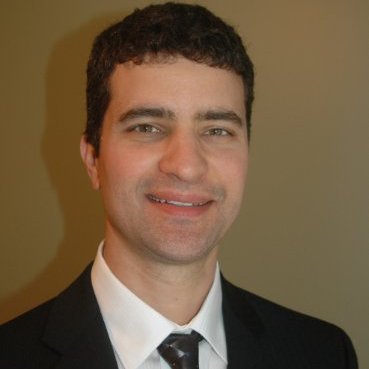Graduate Highlight: EMBA Degrees Pushing Graduates' Careers Forward
What could you gain with an Executive MBA degree from UL Lafayette? Hear stories from the graduates themselves.
Flo Ziegler, Senior Vice President at Stone Energy
Flo Ziegler was in the first cohort for the EMBA program at UL Lafayette, enrolling with 20 years of managerial experience and an undergraduate degree in business from the University. When she enrolled, she was Vice President for Human Resources, Communications and Administration at Stone Energy—and she credits the EMBA program for her promotion to Senior Vice President after she completed the program.
“Without the EMBA, I would have struggled to get the senior vice president position,” Flo says. “The advanced degree helped to give me the confidence to advance my leadership skills. It completed my career path.”
Flo chose the EMBA program over the MBA program because of its “fast track” and time schedule. Though it was challenging, she says she would definitely do it again.
“There are positives and negatives to that quick time frame, but for me, it pushed me but it allowed me to still do my job—to be at work every day,” she says. “I didn’t have to leave to travel to another university, so I didn’t miss a whole lot at work. That was important to me and my company.”
Flo was interested in enhancing her financial knowledge and accounting skills and gain a broader background in business.
“The program was developed with exactly this in mind and helped bring together every aspect of business, culminating with the strategic business class,” she says. “With the shorter time frame, you were able to put things together more quickly—it helped more with the big picture and it helped me build on what I learned earlier in my career.”
Steven Ancelet, Vice President of Engineering and Project Controls at Loadmaster Industries
Steven Ancelet graduated with his EMBA degree in May 2015. At Loadmaster Industries, he oversees about 40 employees with engineering, project management, quality, and health, safety, and environmental responsibilities.
Steven chose to earn his Executive MBA degree over the MBA because of the shorter 16-month timeline and the manageable, work-friendly schedule. Steven was still able to work full-time while he attended classes on alternating weekends with a cohort of other professionals. He chose the EMBA program at UL Lafayette because of the proximity to where he works
and lives, but also because of the low cost compared to other programs online and in the area. “The return on investment was definitely higher,” he says.
Before becoming a vice president, he earned his undergraduate degree in engineering and worked as mid-level manager for 13 years at Loadmaster Industries. He transitioned into his role as vice president while he was enrolled in the EMBA program.
As Steven became more involved with business decisions at work, he realized his lack of a business background was inhibiting him. He credits the EMBA program with helping him earn his promotion because “it made the decision a little easier for those above me,” he says.
When he enrolled in the EMBA program, Steven says he wasn’t completely sure what he would gain from the program beyond the basics of business.
“The most surprising thing for me was the organizational behavioral course we had and realizing how important that is to business,” he says. “I guess some people think of it as a soft skill, but it is important. The behavioral course has affected my day-to-day work, just by looking at the organization as a whole and how people relate to each other—everything from getting new hires on board to company culture. I really sat down and took a look at all of that.
“I try to make that a point in how I work with people, how I work for them, and how they work for me,” he continues. “Something always in the back of my mind is how we communicate and everybody’s perspective on things.”
He also adds that the finance education he received in the EMBA program had the biggest impact on his career.
“Finance, accounting, economics—those had the biggest impact because they’re so foundational to business,” he says. “Now I’m involved at the VP level in company finances, and it made it a lot more comfortable for me to understand what’s going on. Now that I’ve completed all the coursework, I definitely have confidence in what I’m doing.”
And the biggest impact outside of his work? The relationships he formed with the classmates in his cohort.
“We work so closely together and we got so close and we all stayed together,” he says. “We were always together, worked well together, spent time together outside of class studying, so that was a unique aspect of it. I’m not certain that’s how it is in the traditional MBA class.”
David Young, Chief Operating Officer at K2 Coolers, LLC 
David Young graduated from the EMBA program in December 2013 after working in managerial positions for nine years in the governmental and private sectors. He’s the COO at K2 Coolers, LLC, where he oversees the company’s operations, sales, marketing, manufacturing, logistics, quality control and assurance, legal, and human resources needs.
He chose to pursue a graduate degree in business because he wanted to “solidify the practical knowledge I was acquiring experientially through my day-to-day job responsibilities” with the graduate-level education he would receive in the EMBA program. And he chose to earn his EMBA degree from UL Lafayette because of its proximity to work and home, plus the quality of education in the B.I. Moody III College of Business Administration and the cost compared to alternative programs at LSU, Tulane, McNeese, Rice, and Vanderbilt.
David says he chose the EMBA degree program over a traditional MBA program because of the weekend classes, which let him continue working in his current position. “Equally as important, I could apply what I learned in class immediately—in real time—to my job,” he adds.
Overall, David says the EMBA program solidified his job performance. Having the academic experience combined with his practical experience gave him more confidence in his work and made him a better employee.
Part of that academic experience was learning from his classmates, and he gained “excellent” relationships and friendships during the process.
“And let’s face it, having the wealth of knowledge provided to me by several of my fellow students was invaluable, as well,” he says.
Studying statistics, organizational behavior, and marketing in an academic setting were the most eye-opening, David says.
“A manager is only as good as the people who report to him or her,” he says. “Consequently, a manager’s ability to manage people dictates where that person is successful or not. The organizational behavior course provided me with an invaluable foundation upon which to build my ability to manage, motivate, and direct the people who report to me.”

